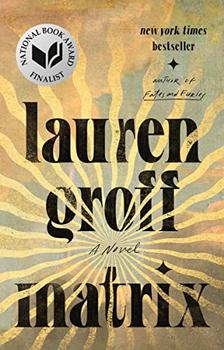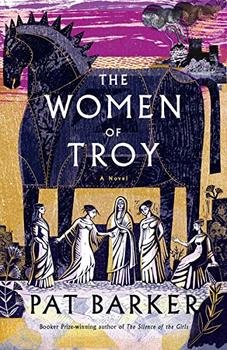Summary | Excerpt | Reviews | Beyond the book | Read-Alikes | Genres & Themes | Author Bio

A Novel
by Rebecca StottA captivating novel about two sisters fighting for survival in Dark Ages Britain that casts a thrilling spell of magic and myth.
The year is 500 AD. Sisters Isla and Blue live in the shadows of the Ghost City, the abandoned ruins of the once-glorious mile-wide Roman settlement Londinium on the bank of the River Thames. But the small island they call home is also a place of exile for Isla, Blue, and their father, a legendary blacksmith accused of using dark magic to make his firetongue swords—formidable blades that cannot be broken—and cast out from the community. When he dies suddenly, the sisters find themselves facing enslavement by the local warlord and his cruel, power-hungry son. Their only option is to escape to the Ghost City, where they discover an underworld of rebel women living secretly amid the ruins. But if Isla and Blue are to survive the men who hunt them, and protect their new community, they will need to use all their skill and ingenuity—as well as the magic of their foremothers—to fight back.
With an intimate yet cinematic scope, Dark Earth re-creates an ancient world steeped in myth and folklore, and introduces us to unforgettable women who come to vibrant life on the page. A heart-in-mouth adventure full of moments of tenderness, this is a beautiful, profound novel about oppression and power that puts a female perspective on a historical period dominated by men's stories.
The vividly developed setting underlays every part of the book, giving the story a magical feel. Londinium's decay serves as a counterpoint to the characters' lives, creating a rich juxtaposition between what has been lost to time on a grand scale and what the characters personally have lost. In Dark Earth, Stott tells a deeply personal story set amidst the sweeping tide of history. Moving and thrilling in turns, it is likely to be a favorite of readers who enjoy historical fiction and fantasy...continued
Full Review
(576 words)
This review is available to non-members for a limited time. For full access,
become a member today.
(Reviewed by Katharine Blatchford).
 In Dark Earth, sisters Isla and Blue attempt to claim protection from a warlord under the laws of sixth century England, while also hiding the fact that they've broken those laws. This part of British history was a time of transition, and the laws of the land were no exception to that. Starting in the fifth century, Germanic peoples immigrated to Britain. In the past it was believed they belonged to three tribes: the Angles, the Saxons and the Jutes — hence the term Anglo-Saxon. However, modern research has shown that these people were from a variety of groups, and much less unified than previously thought.
In Dark Earth, sisters Isla and Blue attempt to claim protection from a warlord under the laws of sixth century England, while also hiding the fact that they've broken those laws. This part of British history was a time of transition, and the laws of the land were no exception to that. Starting in the fifth century, Germanic peoples immigrated to Britain. In the past it was believed they belonged to three tribes: the Angles, the Saxons and the Jutes — hence the term Anglo-Saxon. However, modern research has shown that these people were from a variety of groups, and much less unified than previously thought.
When they arrived, they found a land already populated by a diverse mix of native Britons, displaced Romans and former Roman ...
This "beyond the book" feature is available to non-members for a limited time. Join today for full access.

If you liked Dark Earth, try these:

by Lauren Groff
Published 2022
Cast out of the royal court by Eleanor of Aquitaine, deemed too coarse and rough-hewn for marriage or courtly life, seventeen-year-old Marie de France is sent to England to be the new prioress of an impoverished abbey, its nuns on the brink of starvation and beset by disease.

by Pat Barker
Published 2022
A daring and timely feminist retelling of The Illiad from the perspective of the women of Troy who endured it--an extraordinary follow up to The Silence of the Girls from the Booker Prize-winning author of The Regeneration Trilogy.